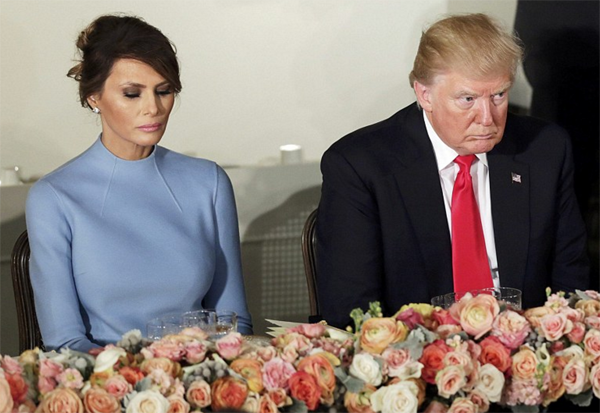"On notice," as meaningless as ever
Donald Trump, conducting foreign policy by tweet, announced that "Iran has been formally PUT ON NOTICE for firing a ballistic missile." National Security Advisor Mike Flynn reiterated that point at a news conference, though press secretary Sean Spicer was unable to explain what "on notice" actually means in this context. Could be because in diplomacy, putting a country "on notice" is not actually a thing.
The use of "on notice" did not go unnoticed by Stephen Colbert, who, in his "Late Show" monologue last night, accused Donald Trump of stealing the old "on notice" bit that he used to do on his Comedy Central show, "The Colbert Report." Fans of that show will recall Colbert, in his blustery conservative talk-show persona, would put the names of people and entities on an "On Notice" board for various slights, real or imagined.
Read the rest of this entry »

